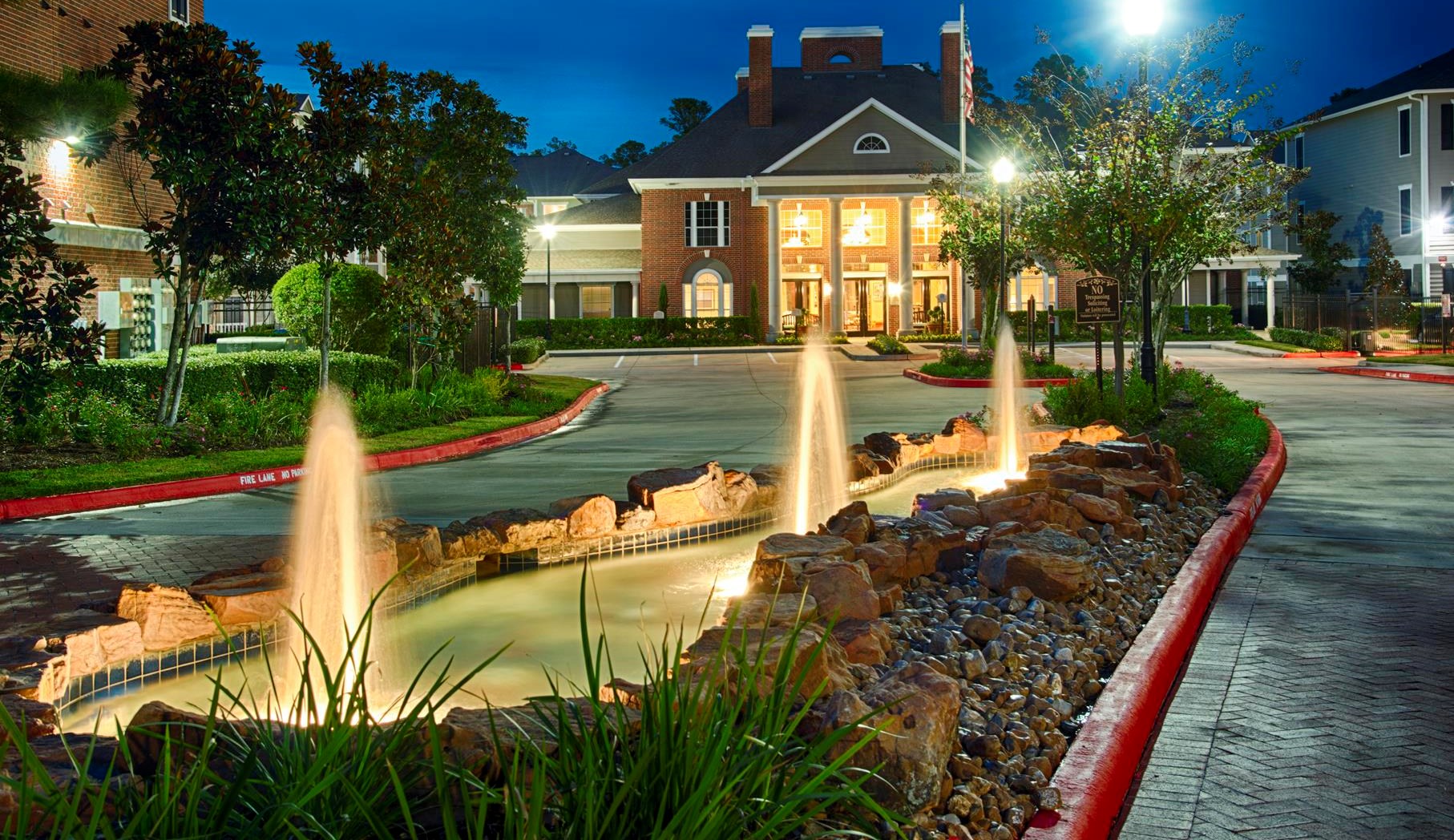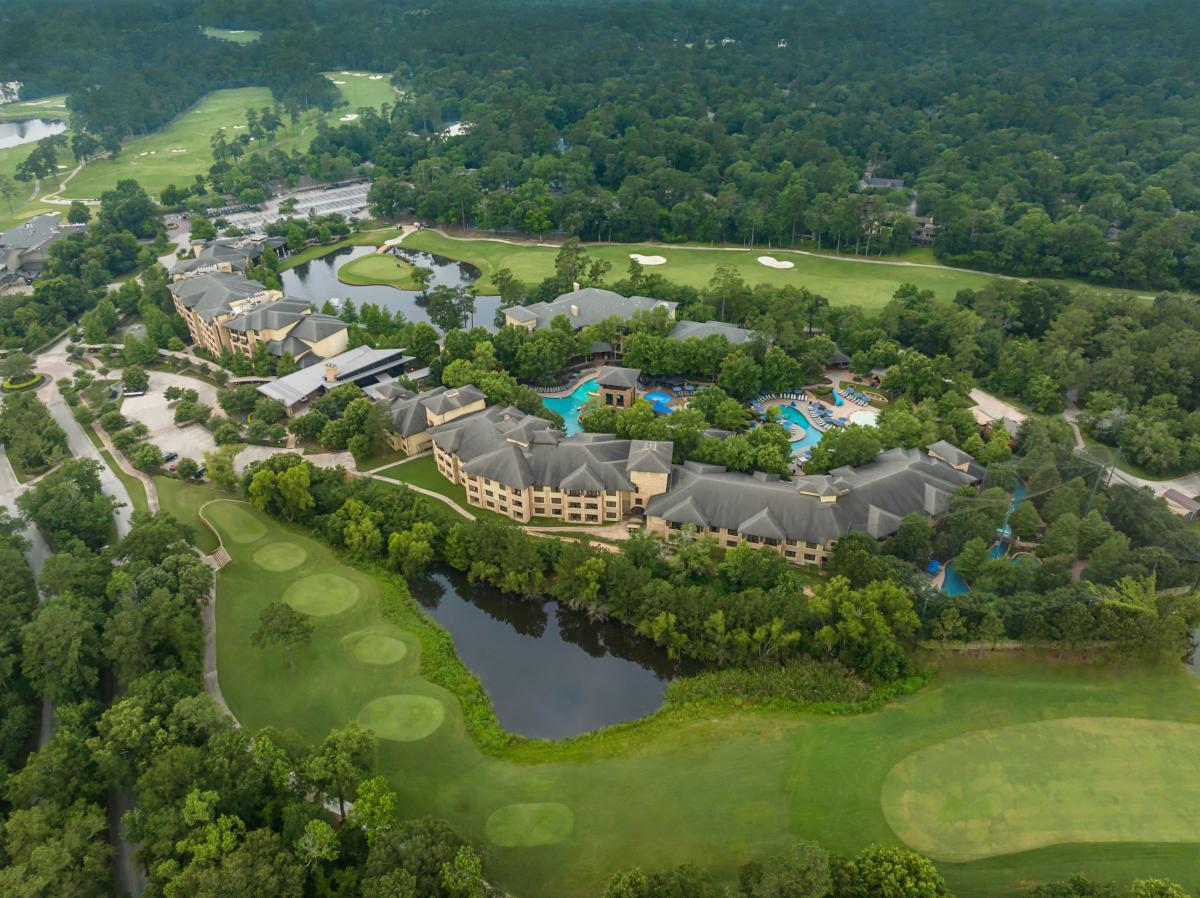**Embarking on a journey to understand a place often begins with its name. When we encounter a designation like The Plantation Woodlands TX, it immediately piques curiosity, inviting us to delve deeper into the layers of history, geography, and societal evolution that might have shaped it. This article aims to explore the multifaceted meaning behind such a name, navigating the profound historical weight of the term "plantation" and its potential connection to a "woodlands" setting within the vibrant landscape of Texas.** Our exploration will dissect the historical definitions of "plantation," examine its often-troubling legacy, and consider how such a name might resonate in contemporary society, fostering a deeper appreciation for the complex narratives embedded in our landscapes and communities. The term "plantation" itself carries a significant historical burden, evoking images that range from agricultural estates to sites of immense human suffering. Coupled with "woodlands," it suggests a specific type of environment, perhaps one rich in natural resources or historical land use. This article will meticulously unpack these elements, drawing upon established definitions and historical contexts to provide a comprehensive understanding for anyone curious about the historical and cultural underpinnings of places like The Plantation Woodlands TX.
Table of Contents
- What Exactly is a "Plantation"? Deconstructing the Term
- The Darker Side: Plantations as Sites of Oppression
- The "Woodlands" Context: Landscape, Nature, and Development
- The Plantation Woodlands TX: Navigating a Name with History
- Beyond the Name: Understanding Land Use and Legacy in Texas
- Preserving History, Fostering Understanding: The Role of Education
- Community Engagement and Dialogue in The Woodlands Area
- Looking Forward: Honoring the Past, Shaping the Future of The Plantation Woodlands TX
What Exactly is a "Plantation"? Deconstructing the Term
The word "plantation" often conjures specific images, but its meaning has evolved and carries significant historical weight. To understand a place potentially named The Plantation Woodlands TX, it's crucial to first grasp the foundational definitions and historical applications of "plantation." At its core, a plantation is defined as "a usually large group of plants and especially trees under cultivation." This simple botanical definition, however, quickly expands into a more complex socio-economic reality.The Historical Definition: Cultivation and Control
Historically, "plantation" refers to "a usually large estate in a tropical or subtropical region that is cultivated by unskilled or semiskilled labour under central direction." This definition highlights key characteristics: scale, geographical location, and a specific labor structure. "Plantations are farms specializing in cash crops, usually mainly planting a single crop, with perhaps ancillary areas for vegetables for eating and so on." This specialization in "cash crops," such as "banana," cotton, sugar, or tobacco, was central to their economic function. The focus was on producing goods for export, "mostly for export, and less for local use," rather than for local consumption. This model of agriculture was highly efficient for generating wealth, but it came at a profound human cost. The centralized direction implied a hierarchical system of management and control, often exercised over a large, often coerced, workforce. Understanding this historical context is paramount when considering any modern place that carries the term "plantation" in its name, including a hypothetical or actual "The Plantation Woodlands TX."Cash Crops and Colonialism: The Economic Engine
The rise of the plantation system was inextricably linked to the era of colonialism. As European powers expanded their empires, they sought to exploit new territories for resources and wealth. Plantations became the primary engines of this economic exploitation, designed to produce high-demand commodities for European markets. This "meaning of the term arose during the period of" intense colonial expansion. The cultivation of a "particular type of crop" on a "large farm, especially in a hot part of the world," was a deliberate strategy to maximize profits. This system fueled global trade networks, enriching colonial powers and a select few landowners, but simultaneously creating vast disparities in wealth and power. The economic success of these plantations, however, was built upon a foundation of forced labor and systemic injustice, a legacy that continues to resonate today.The Darker Side: Plantations as Sites of Oppression
While the term "plantation" might initially evoke images of sprawling fields and agricultural bounty, it is impossible to discuss its historical meaning without confronting its darker, more brutal reality. The prosperity generated by plantations was almost universally built upon the exploitation and suffering of human beings.Slavery and Social Inequality: A Legacy of Brutality
"Plantations are also sites of brutal oppression." This stark statement encapsulates the grim truth about these agricultural enterprises. In the context of the United States and the Caribbean, plantations were the primary engines of the transatlantic slave trade. "They’re largely responsible for the prolific growth of slavery in the united states." Millions of Africans were forcibly brought across the Atlantic, stripped of their freedom, and subjected to horrific conditions, relentless labor, and systemic violence on these vast estates. The labor force on plantations was not merely "unskilled or semiskilled"; it was enslaved, dehumanized, and treated as property. This system created and perpetuated deep-seated social and political inequalities that continue to impact societies today. The wealth generated by these "large farm[s]" was directly proportional to the suffering inflicted upon the enslaved people who worked them.British Colonialism's Role in the Plantation System
The article provided clearly states, "This article describes the plantation system in the united states and the caribbean as a tool of british colonialism that contributed to social and political inequality." This highlights the instrumental role of colonial powers, particularly the British, in establishing and perpetuating the plantation system. It was not merely an agricultural method but a deliberate economic and political strategy to extract resources and wealth from colonized lands. This system of "central direction" from afar allowed for the ruthless exploitation of both land and labor, creating vast disparities between the colonizers and the colonized, and between the enslavers and the enslaved. The legacy of this system is not just economic but deeply social and political, shaping the demographics, power structures, and racial dynamics of many nations, including the United States. Understanding this historical context is crucial for anyone seeking to interpret the full meaning of a name like The Plantation Woodlands TX.The "Woodlands" Context: Landscape, Nature, and Development
Moving from the historical definition of "plantation," let's consider the "Woodlands" aspect of "The Plantation Woodlands TX." The term "woodlands" typically refers to an area characterized by trees and dense vegetation, often less dense than a forest, allowing more light to penetrate to the ground. This natural landscape can represent various things: untouched natural beauty, a managed timber resource, or a setting for residential or commercial development. In many parts of Texas, including areas that might be described as "woodlands," the land has undergone significant transformation over centuries. What might have once been pristine forests could have been cleared for agriculture, including, in some historical instances, for plantations. Conversely, "woodlands" might also refer to areas that were never extensively farmed due to unsuitable soil or terrain, remaining as natural forested habitats. Modern developments often incorporate "woodlands" into their names to evoke a sense of natural beauty, tranquility, and connection to nature. This contrasts sharply with the historical function of plantations, which were about intensive cultivation and extraction, often at the expense of natural ecosystems. Therefore, the juxtaposition of "plantation" and "woodlands" in a name like The Plantation Woodlands TX invites a contemplation of how land use has evolved, from historical exploitation to modern preservation or curated natural environments. It prompts questions about the ecological history of the area and how it has been shaped by human activity over time.The Plantation Woodlands TX: Navigating a Name with History
The choice of "The Plantation Woodlands TX" as a name for a community, development, or even a natural preserve is deeply significant and warrants careful consideration. Given the profound and often painful history associated with the term "plantation," its use in a modern context can evoke a range of reactions, from curiosity to discomfort. For some, it might simply be seen as a historical reference to a type of land use or a nod to a past era. For others, particularly those whose ancestors endured the horrors of the plantation system, the name can be a stark reminder of injustice and oppression. Navigating such a name requires an understanding of its dual nature: the descriptive aspect (a large cultivated area) and the historical baggage (a site of forced labor and systemic inequality). If "The Plantation Woodlands TX" is a contemporary development, its naming might be an attempt to evoke a sense of grandeur, tradition, or a connection to a specific type of landscape, perhaps without fully acknowledging the historical implications. However, in an era of increased historical awareness and social consciousness, it becomes imperative for communities and developers to engage with the full spectrum of meaning behind such terms. This engagement can lead to valuable dialogues about local history, heritage, and how we choose to represent our past in the present. It encourages a deeper look into whether the name intends to honor a problematic past or simply describes a landscape feature that, by coincidence, aligns with a historically loaded term.Beyond the Name: Understanding Land Use and Legacy in Texas
To fully appreciate the context of a place potentially named The Plantation Woodlands TX, it's essential to look beyond the immediate name and understand the broader patterns of land use and historical legacy in Texas. Texas, like many Southern states, has a complex history intertwined with agriculture, including cotton and sugar cane cultivation in certain regions. While not as dominant as in the Deep South, plantation-style agriculture did exist, particularly in East Texas and along river valleys, contributing to the state's economic development during the 19th century. This historical land use directly contributed to the social and economic fabric of the state, influencing everything from demographics to infrastructure. The legacy of these historical practices, including the use of enslaved labor, continues to shape discussions about wealth disparities, racial justice, and historical preservation in Texas today. Understanding this broader context helps to frame how a name like "The Plantation Woodlands TX" might resonate. It prompts questions about what historical land uses occurred in the specific area, whether the "woodlands" were ever cleared for cultivation, and how the community acknowledges or interprets this past. This deep dive into land use history is crucial for any place that carries a name with such historical weight, ensuring that the past is not forgotten but rather understood in its full complexity.Preserving History, Fostering Understanding: The Role of Education
The existence of names like The Plantation Woodlands TX, or any place with a historically significant and potentially sensitive name, underscores the critical importance of education and historical literacy. Rather than shying away from uncomfortable truths, engaging with them offers an opportunity for profound learning and growth. Education about the true nature of plantations – not just as agricultural enterprises but as "sites of brutal oppression" and tools of colonialism – is vital for fostering a comprehensive understanding of history. This educational endeavor involves more than just memorizing dates; it requires critical thinking about how historical events and systems, like the plantation system, continue to influence contemporary society. For communities associated with such names, this means actively seeking out and sharing accurate historical narratives, acknowledging the full human cost of past practices. It involves open dialogue about the legacy of slavery and inequality, ensuring that future generations understand the complexities of their heritage. By embracing education, communities can transform potentially sensitive names into catalysts for understanding, empathy, and reconciliation, building a more informed and just society. This commitment to truth and understanding is a cornerstone of E-E-A-T principles, ensuring that information is not only accurate but also responsibly presented.Community Engagement and Dialogue in The Woodlands Area
For any community, including one potentially associated with "The Plantation Woodlands TX," active engagement and open dialogue are paramount for navigating its historical identity. This involves creating platforms where residents, historians, and stakeholders can discuss the past, present, and future of their shared space. The ability to "read up on the latest projects, events, meetings and more, in english or spanish!" is a testament to a community's commitment to transparency and inclusivity. Such initiatives allow for a broader understanding of local history, including any connections to the plantation system, and facilitate discussions on how to appropriately acknowledge or commemorate it. Community meetings, historical societies, local museums, and public forums can all play a vital role in this process. They provide spaces for diverse perspectives to be heard, for historical research to be shared, and for collective decisions to be made about how to represent the community's past. This might involve educational signage, memorial projects, or even discussions about naming conventions. By fostering an environment of open communication and mutual respect, communities can ensure that their historical narratives are inclusive and reflect the experiences of all who have shaped the area, moving beyond a simplistic interpretation of names and towards a richer, more nuanced understanding of their heritage.Looking Forward: Honoring the Past, Shaping the Future of The Plantation Woodlands TX
As we conclude our exploration of "The Plantation Woodlands TX," it becomes clear that understanding such a name requires a nuanced approach, blending historical accuracy with contemporary sensitivity. The term "plantation" is deeply rooted in a history of agricultural development intertwined with immense human suffering and systemic inequality. While "woodlands" speaks to a natural landscape, their combination in a name compels us to reflect on how land has been used, transformed, and named over time. Moving forward, the focus must be on embracing a comprehensive understanding of history. For any place that carries a name with such historical weight, whether it's a residential development, a natural preserve, or a historical site, the opportunity exists to educate, to foster dialogue, and to ensure that the full story is told. This means acknowledging the complex legacy of the plantation system, honoring those who suffered, and learning from the past to build a more equitable future. By doing so, communities can transform names into powerful symbols of remembrance, resilience, and progress, ensuring that the heritage of The Plantation Woodlands TX, or any similar place, is understood in its entirety, contributing to a more informed and just society.Conclusion
Our deep dive into "the plantation woodlands tx" has revealed that a name is rarely just a name; it is a gateway to layers of history, social context, and environmental evolution. We've explored the historical definitions of "plantation," emphasizing its role in cash crop cultivation and, more critically, its indelible link to brutal oppression and the proliferation of slavery, particularly under British colonialism. We've also considered the "woodlands" aspect, juxtaposing natural landscapes with historical land use and modern development. Understanding the full historical weight of "plantation" is crucial for any place bearing such a name, prompting vital conversations about land legacy, social justice, and historical interpretation in Texas. This journey underscores the importance of historical literacy and community engagement in navigating complex names and legacies. By embracing education and fostering open dialogue, communities can transform potentially sensitive historical markers into opportunities for profound understanding and collective growth. We encourage you to delve deeper into the local history of your own community, to seek out reliable sources, and to engage in conversations that illuminate the rich, often challenging, narratives embedded in the places we inhabit. What historical names or places in your area hold hidden stories? Share your thoughts and discoveries in the comments below, or explore more of our articles on historical land use and community development.


